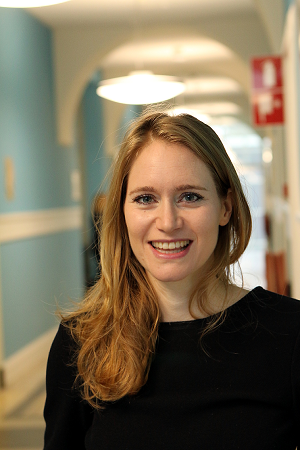Vulnerable asylum seekers’ children need better preparation for repatriation

How do the children of rejected asylum seekers manage when they are repatriated, whether voluntarily or against their will? PhD research by Daniëlle Zevulun into the children of asylum seekers in Kosovo and Albania shows that not all these children cope well after their return to their country of origin. Some of them return to a life of poverty, are bullied, stop going to school and are unable to make new friends. Zevulun: ‘A better understanding of the factors that cause these problems might help us to prepare the children of asylum seekers for their return.’ She will be awarded a PhD by the University of Groningen on 14 December.
Zevulun’s research focuses on children who took part in a European study four years ago. Together with professionals in Kosovo, 157 asylum seekers’ children between the ages of eleven and eighteen were monitored after their return to Albania and Kosovo. The children had been repatriated from various European host countries. Zevulun: ‘It turns out that children who return to high-quality living conditions have fewer social-emotional problems. Children from minority groups, such as Roma children, have more problems when they return.’
In the best interests of the child
Zevulun hopes that her research will provide greater insight into the factors affecting the well-being of children who are repatriated. ‘Article 3 of the Children’s Rights Convention states that every decision made about a child must be made in the best interests of that child. In the case of a decision about repatriation, this means deciding whether a child will be able to develop well after returning to his or her country of origin. The Children’s Rights Convention serves as the basis for my research: I measure the quality of the conditions in which a repatriated child grows up from the perspective of the child’s best interests.’
No difference between voluntary and enforced repatriation
The children of parents who had a residence permit in the host country but returned voluntarily, fare better than children whose parents did not have a residence permit. Zevulun: ‘We found no differences between the children of families without a residence permit who were repatriated involuntarily and those who returned voluntarily with their parents. If you aren’t given the opportunity to stay, even a voluntary return feels enforced.’
Follow up
Zevulun studied a number of the children again three years later: ‘A Kosovan psychiatrist helped me to trace some of the children who had been having a hard time three years earlier. We conducted telephone interviews with the parents of 23 children and visited 13 children at home. The follow-up study focuses on the most vulnerable group of children.’
Problems fitting in
The main problem for these vulnerable children was fitting in. ‘They had problems at school because they hadn’t mastered the language, for example, or because they didn’t have the right certificates to go to a suitable school or were even put back a few years. The longer the children had lived in a host country, the more language difficulties they encountered. Older adolescents often found it hard to make new friends, which is logical really. This is an age group for whom social context is paramount, and it’s the context that’s changed. Many of the children that don’t go to school live in isolation, don’t go outside and have serious emotional and social problems.’
Harrowing examples
She cites a few harrowing examples that have stuck in her mind, such as a single mother who lives in total isolation with her children. ‘Another family that fled because of a blood feud now lives next door to the people who want to kill them. The father fears for his life whenever he leaves the house, the son has been threatened and the daughter has stopped going to school. These people appreciate someone listening to them, but it’s dreadful not being able to help them.’
Sustainable return
She would like to see her research followed up and expanded. ‘At the moment, we don’t know much about the rearing environments in each of the host countries. It would also be helpful to make an inventory of the context and risk factors per country of origin. I’d also like to see the children monitored for longer: before, during and after their return. Only then will we have enough information to help children settle back into their country of origin. If, as most European host countries claim, you are aiming for sustainable return to safe countries, it is essential that families can build a good life in their home country and not feel compelled to return to the host country out of sheer desperation.’
PhD Thesis: Repatriation and the Best Interests of the Child. The rearing environment and wellbeing of migrant children after return to Kosovo and Albania. Supervisors: Prof. M.E. Kalverboer and Prof. E.J. Knorth.
More news
-
20 January 2026
Alcohol, texting, and e-bikes
-
13 January 2026
Lonneke Lenferink joins The Young Academy
-
08 December 2025
Citizen participation essential for a sustainable energy future
